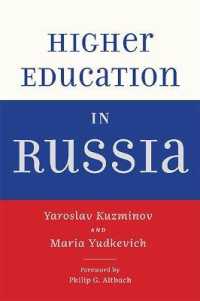Full Description
Secularism[-]Democracy[-]religion[-]multiculturalism[-]associational governance[-]philosophy, law[-]history
Contents
Summary contents - 6[-]Detailed contents[-] - 8[-]Preface[-] - 14[-]Introduction[-] - 18[-]Part 1: Modern states and religious, sociological and historical considerations: setting the stage - 34[-] Ch. 1: Secularisation and seperation? Institutional diversity of religious governace[-] - 36[-]Part 2: Reconceptualising principles and making political philosophy fit for the task of accommodating religious diversity[-] - 66[-] Ch. 2: Contextualising morality: moral minimalism, relational neutrality, and fairnee as even-handedness[-] - 68[-] Ch. 3: Priority for liberal democracy or secularism?: Why I am not a secularist[-] - 94[-]Part 3[-] - 128[-] Ch. 4: Religious freedoms and other human rights, moral conundrums and hard cases[-] - 130[-] Ch. 5: Relational neutrality and even-handedness toward religions: softer cases and symbolic isseus[-] - 154[-]Part 4: Institutional models of democracy and religious governance: associative democracy[-] - 176[-] Ch. 6: Moderately agonistic democracy, democratic institutional pluralism, associative democracy and the incorporation of minorities[-] - 180[-] Ch. 7: Normative models of religious governance: associative democracy, a moral defence[-] - 202[-] Ch. 8: Dilemmas of institutionalisation: associative democracy, church atonomy and equal treatment of religious - 224[-] Ch. 9: A realistic defence of associative democracy[-] - 246[-] Ch. 10: Associative democracy and education - 264[-]Conclusions[-] - 292[-]Notes[-] - 302[-]References[-] - 348[-]Index of Names[-] - 368[-]Index of subjects[-] - 376







